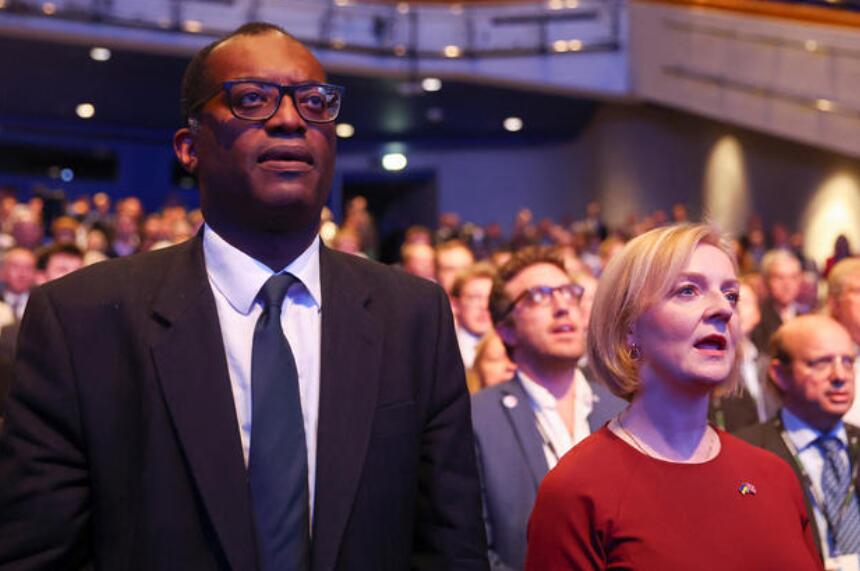The new British government has dropped plans to cut income tax for top earners, part of a package of unfunded cuts that sparked turmoil on financial markets and sent the pound to record lows.
In a dramatic about-face, Treasury chief Kwasi Kwarteng said Monday he won’t scrap the top 45% rate of income tax paid on earnings above 150,000 pounds ($167,000) a year.
“We get it, and we have listened,” he said in a statement, adding that “it is clear that the abolition of the 45p tax rate has become a distraction from our overriding mission to tackle the challenges facing our country.”
The U-turn came after a growing number of lawmakers from the governing Conservative Party turned on government tax plans announced 10 days ago.
It also came hours after the Conservatives released advance extracts of a speech Kwarteng is due to give later Monday at the party’s annual conference in the central England city of Birmingham. He had been due to say: “We must stay the course. I am confident our plan is the right one.”
Prime Minister Liz Truss defended the measures on Sunday, but said she could have “done a better job laying the ground” for the announcements.
Kwarteng told the BBC the focus on the top tax rate had become a “massive distraction” but said he hadn’t considered stepping down, according to Agence France-Presse.
“I’m very pleased that we’ve decided not to proceed with that because it was drowning out the elements of an excellent plan,” he said.
In a tweet early Monday, Truss also said the tax rate had “become a distraction from our mission to get Britain moving”.
Truss took office less than a month ago, promising to radically reshape Britain’s economy to end years of sluggish growth. But the government’s Sept. 23 announcement of a stimulus package that includes 45 billion pounds ($50 billion) in tax cuts, to be paid for by government borrowing, sent the pound tumbling to a record low against the dollar.
The Bank of England was forced to intervene to prop up the bond market, and fears that the bank will soon hike interest rates caused mortgage lenders to withdraw their cheapest deals, causing turmoil for homebuyers.
The cuts were unpopular, even among Conservatives. Reducing taxes for top earners and scrapping a cap on bankers’ bonuses while millions face a cost-of-living crisis driven by soaring energy bills was widely seen as politically toxic.
Truss and Kwarteng insisted their plan would deliver a growing economy and eventually bring in more tax revenue, offsetting the cost of borrowing to fund the cuts. But they also signaled that public spending would need to be slashed.
Kwarteng said the government was sticking to its other tax policies, including a cut next year in the basic rate of income tax and a reversal of a corporation tax hike planned by the previous government.
The pound rose after Kwarteng’s announcement to around $1.12 – about the value it held before the Sept. 23 budget announcements.
